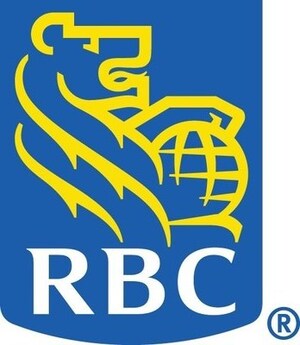Canadians tightened their belts during the holidays: RBC Poll
Most stayed on budget or had savings goals to avoid increasing debt; almost one-third overspent
TORONTO, Feb. 7, 2013 /CNW/ - Canadians gave themselves the gift of debt management over the holidays and started 2013 with confidence, according to the RBC Post-Holiday Spending Poll. About seven-in-10 Canadians (69 per cent) kept their holiday spending in check, led by residents in Quebec (72 per cent), British Columbia (70 per cent) and Saskatchewan and Manitoba (70 per cent).
Canadians used a variety of strategies to help them stick to their holiday budgets, including avoiding going into debt or increasing their debt loads (41 per cent, up one point from a year ago) or keeping track of spending (31 per cent, up four points from last year). Some survey respondents said they controlled their costs by focusing on only spending what they had (28 per cent, up two points from the 2012 survey). The desire to reach a savings goal also kept some Canadians from spending more than intended (13 per cent, up four points from a year ago).
"The majority of Canadians had a solid game plan for holiday purchases by setting goals to avoid a debt hangover for the new year," said Kim Taylor, director, Client, Personal Lending at RBC. "It's encouraging to see that Canadians are paying attention to their household debt levels and managing their debts, while continuing to save for the future."
Almost one-third of Canadians (31 per cent, unchanged from last year) said they spent more than intended during the holidays, led by residents in Ontario and Atlantic Canada (tied at 33 per cent each). Nationally, Canadians overspent their budget by an average of $463, down slightly from the $467 overspent from the previous year.
Among Canadians who overspent during the holidays, the RBC poll found that most plan to cut back on day-to-day living expenses such as groceries, phone and cable (43 per cent), entertainment (41 per cent), or coffee and lunch money (32 per cent) in order to get back on track. Some Canadians are cutting back on debt either through their use of credit cards (38 per cent) or lines of credit (15 per cent).
"Some Canadians went over their holiday budgets and are now making short-term changes to discretionary items, such as entertainment and coffee, to get back on track," said Taylor. "That's why it's a good idea to create and stick to a budget and monitor your spending throughout the year."
Provincial Highlights
- Percentage of Canadians who kept their holiday spending in check:
| National | 69 per cent (unchanged from a year ago) |
| British Columbia | 70 per cent (unchanged from a year ago) |
| Alberta | 69 per cent (down from 71 per cent a year ago) |
| Saskatchewan and Manitoba |
70 per cent (up from 68 per cent a year ago) |
| Ontario | 67 per cent (down from 68 per cent a year ago) |
| Quebec | 72 per cent (up from 71 per cent a year ago) |
| Atlantic Canada | 67 per cent (up from 65 per cent a year ago) |
- Percentage of Canadians who spent more than intended compared to a year ago:
| National | 31 per cent (unchanged from a year ago) |
| British Columbia | 30 per cent (unchanged from a year ago) |
| Alberta | 31 per cent (up from 29 per cent a year ago) |
| Saskatchewan and Manitoba |
30 per cent (down from 32 per cent a year ago) |
| Ontario | 33 per cent (up from 32 per cent a year ago) |
| Quebec | 28 per cent (down from 29 per cent a year ago) |
| Atlantic Canada | 33 per cent (down from 35 per cent a year ago) |
- Amount Canadians spent more than intended:
| National | $463.30 (down $3.80 from $467.10 a year ago) |
| British Columbia | $439.60 (down $103.80 from $543.40 a year ago) |
| Alberta | $504.20 (down $27.60 from $531.80 a year ago) |
| Saskatchewan and Manitoba |
$477.30 (up $68.90 from $408.40 a year ago) |
| Ontario | $477.50 (up $11.80 from $465.70 a year ago) |
| Quebec | $402.00 (down $14.10 from $416.10 a year ago) |
| Atlantic Canada | $533.80 (up $61.60 from $472.20 a year ago) |
About the RBC Post-Holiday Spending Poll
The survey was conducted online via Ipsos Reid's national I-Say Consumer Panel of 3,150 Canadians. Weighting was then employed to balance demographics and ensure that the sample's composition reflects that of the adult population according to Census data and to provide results intended to approximate the sample universe. Data collection was January 2 to 14, 2013. A survey with an unweighted probability sample of this size and a 100 per cent response rate would have an estimated margin of error of ±2 percentage points, 19 times out of 20, of what the results would have been had the entire population of adults in Canada been polled.
SOURCE: RBC

WANT YOUR COMPANY'S NEWS FEATURED ON PRNEWSWIRE.COM?
Newsrooms &
Influencers
Digital Media
Outlets
Journalists
Opted In



Share this article